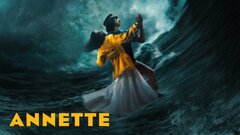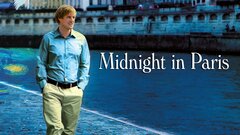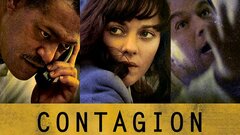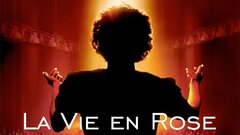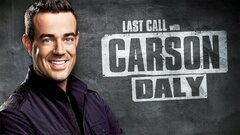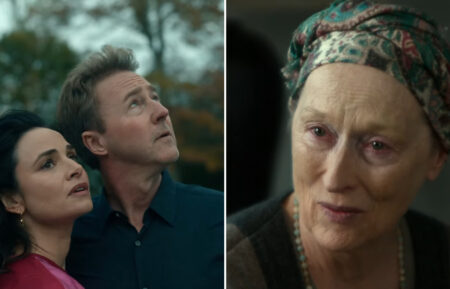French actress Marion Cotillard starred in numerous movies in France since the mid-1990s. American audiences received their first glimpse of Cotillard in Tim Burton's "Big Fish" (2003) and the popular arthouse import, "A Very Long Engagement" (2005). Recognized internationally for her brilliant work in the remarkable Edith Piaf biopic "La Vie en Rose" (2007), the actress earned an Academy Award and became one of the more acclaimed acting talents of the decade.
Now heavily courted by Hollywood, she divided her energies between more personal projects - often in her home country - and large studio pictures, like director Michael Mann's slick gangster epic "Public Enemies" (2009) or Christopher Nolan's inventive and successful sci-fi noir, "Inception" (2010). She charmed Owen Wilson's lovelorn writer and audiences alike in Woody Allen's nostalgic fantasy-romance "Midnight in Paris" (2011) and stunned critics with her fearless, utterly exposed performance in the French romantic drama "Rust and Bone" (2012).
A reunion with Nolan for a part in his Batman trilogy finale "The Dark Knight Rises" (2012) further illustrated her willingness to combine the artistically satisfying with the financially rewarding. Time and time again, Cotillard furthered her professional reputation with roles that showcased her ability to embody complex, strong women in any number of genres.
Born on Sept. 30, 1975, Marion Cotillard grew up in a highly artistic household in Orleans, France, a town very close to her birthplace of Paris. Her father, Jean-Claude Cotillard was an actor, teacher, director, and mime, while her mother Niseema Theillaud was an actress. She had two younger identical twin brothers, Quentin, a sculptor and painter, and Guillaume, a writer. Cotillard's parents traveled frequently with their acting troupe, often bringing back exotic gifts from places like Hong Kong or Peru to their children. It all served to inspire their talented daughter to follow in their footsteps.
She wanted to be an actress as early as she could remember, even appearing onstage in plays her father wrote. When Cotillard was 16, she moved to Paris and, after getting her feet wet in a few TV spots, began her acting career. In 1998, she was cast in Luc Besson's action comedy "Taxi" as Lilly Bertineau, the girlfriend of an aspiring racecar driver and a role she would reprise in the subsequent films "Taxi 2" (2000) and "Taxi 3" (2003). The following year, the newcomer was sharing the screen with veteran actress Jeanne Moreau in the drama "War in the Highlands" (1999) and taking the female lead in the sci-fi romance, "Furia" (1999) as an outlaw artist in a near future where self-expression is outlawed. Cotillard earned even more raves for her dramatic performance as twins Lucie and Marie in the 2001 film "Les Jolie Choses" ("Pretty Things"), earning her a Most Promising Actress nomination at the Cesar Awards, the French equivalent of the Oscars.
Cotillard admitted that she would have been a singer had she not pursued acting. Thankfully, she had the chance to do both, co-writing and performing the song "La Fille De Joie" for the movie. It was only a matter of time until Hollywood would take more than a casual interest in the French star.
American audiences were first introduced to Cotillard in director Tim Burton's big-budgeted fantasy "Big Fish," (2003), in which she joined an impressive multi-generational cast including Ewan McGregor, Helena Bonham Carter, Jessica Lange and Albert Finney. The success of "Big Fish" kicked Cotillard's career into high gear. Before returning home, she spent a few weeks in New York to study English before heading back to France. For her femme fatale supporting role alongside Audrey Tatou - another French star who had made international waves with the exquisite film "Amelie" (2001) - in the wartime romance drama "Un long Dimanche de Fiançailles" ("A Very Long Engagement,") (2004), Cotillard earned her first Cesar Award for Best Supporting Actress.
None of Cotillard's seven film performances the following year were as widely seen in the U.S. as "A Very Long Engagement," however her supporting role in Abel Ferrara's film-within-a-film "Mary" (2005) was screened internationally on the independent film festival circuit. In 2006, Cotillard filmed her second American movie, "A Good Year," in which she portrayed a small town French café owner opposite Oscar-winning Russell Crowe as a Londoner who inherits a local property in the remarkably uncharming romantic comedy directed by Ridley Scott.
But 2007 would prove to be Cotillard's own "good year," with the actress earning almost universal acclaim for capturing the volcanic essence and heartbreaking fragility of France's famed rags-to-riches hero Edith Piaf in "La Vie En Rose" (released in France under the title "La Mome"). Named after Piaf's signature song, "La Vie En Rose" ("Life in Pink"), the film had been on every actress' wish list, yet Cotillard was picked out of hundreds of candidates to portray the fallen chanteuse. Feeling the pressure of a nation placed upon her, she wasted no time capturing the volcanic essence and heartbreaking fragility of the late singer. Cotillard said the most rewarding part of playing Piaf was getting to know the woman she came to inhabit. "It took over my life," she said, "I even dreamed about Piaf...we had some night meetings. Seven months of my life for the greatest pleasure I ever had doing my job."
In effect, she delivered the performance of a lifetime, captured most effectively in such scenes as the Olympia Music Hall in which Cotillard - even though she was lip-synching to Piaf's "Non, Je Ne Regrette Rien" - was magnificent as she eerily channeled the singer. "La Vie En Rose" was also a commercial success, beating the opening week sales of "Amelie." Fellow actors were in awe of Cotillard's performance as well, including Academy Award winner Cate Blanchett: "As much as inhabiting Piaf, she was also creating a creature, and I thought that was astonishing and inspiring." Stephen Holden of The New York Times even went so far to write that the actress' take on Piaf was "the most astonishing immersion of one performer into the body and soul of another I've ever encountered in a film."
For her work, Cotillard earned a Golden Globe for Best Performance by an Actress in a Motion Picture - Musical or Comedy, paving the way for an Oscar win for Best Performance by an Actress in a Leading Role.
Unfortunately, the glow of her Academy Award win was tainted by a brush with controversy after brief interview snippets the actress had made a year prior in which she innocently expressed her opinion that that 9/11 attacks on the States might have been a conspiracy, as well as questioned how two buildings of that size could collapse. In any event, the American right-wing press and public had a field day, declaring Cotillard another ungrateful and ill-informed product of France. Cotillard went into apology overdrive, genuinely upset that her thoughts were taken out of context, making her look bad to the country which had just embraced her.
Cotillard's apologies seemed to smooth things over, and she resumed her career without any permanent American backlash.
For her first post-Piaf role, Cotillard opted for a supporting role in Michael Mann's "Public Enemies" (2009), portraying the working-class love interest of real-life 1930s gangster, John Dillinger (Johnny Depp). Ideally cast for her strength at wrapping a fragile character in a tough, self-made exterior, Cotillard proved herself eminently appealing in the stylish affair, and while the film was not the critical darling of her prior work, reviews were mainly positive and it brought in a respectable $100 million at the box office.
In her second film that year, Cotillard joined Penélope Cruz and Nicole Kidman in "Nine" (2009), a highly-anticipated and star-studded musical loosely based on Italian filmmaker Federico Fellini's autobiographical "8 ½" (1963), with Daniel Day-Lewis starring as a filmmaker distracted by the many women in his life. Along with Cruz and Day-Lewis, Cotillard would earn a Golden Globe nomination for her performance in the Rob Marshall-directed picture.
Cotillard earned more praise for her chilling performance as the dream-state manifestation of Leonardo DiCaprio's corporate thief in writer-director Christopher Nolan's mind-bending sci-fi noir blockbuster "Inception" (2010). Back in France, her longtime boyfriend, actor-director Guillaume Canet, cast her as part of the ensemble for his dramedy "Little White Lies" (2010), in which a group of dysfunctional friends clash and reconcile while on summer vacation together. She was able to stay close to home when she joined another large cast in Woody Allen's heralded fantasy-romance "Midnight in Paris" (2011), in which she played the charismatic Adriana, a woman from the 1920s who Owen Wilson's modern-day writer falls for during a series of nostalgic trips back in time.
That same year, she was also seen as a dedicated doctor attempting to trace the source of a deadly global pandemic in director Steven Soderberg's take on the disaster movie genre, "Contagion" (2011). Cotillard once again earned raves - including a Golden Globe nomination for Best Actress - for her nuanced portrayal of a double amputee involved in a complicated relationship with a struggling kick boxer in Jacques Audiard's affecting drama "Rust and Bone" (2012), prior to rejoining Christopher Nolan for a smaller, albeit key role in the conclusion to his monumental Batman trilogy, "The Dark Knight Rises" (2012).
Cotillard next appeared opposite Billy Crudup and Clive Owen in the thriller "Blood Ties" (2013) before starring in the 1920s-set romantic drama "The Immigrant" (2013). After a cameo appearance in the comedy sequel "Anchorman 2: The Legend Continues" (2013), she starred in the acclaimed drama "Two Days, One Night" (2014), written and directed by Jean-Pierre and Luc Dardenne.











